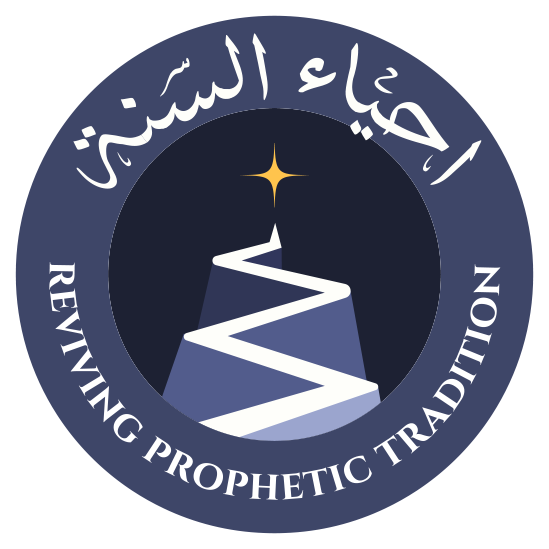The Qur’an highlights the sanctity of four months in the Islamic calendar:
“Indeed, the number of months with Allah is twelve [lunar] months in the register of Allah from the day He created the heavens and the earth; of these, four are sacred.” (Sūrah al-Tawbah, 9:36)
Among these sacred months (Ashhur al-Ḥurum)—Rajab, Dhū al-Qaʿdah, Dhū al-Ḥijjah, and Muḥarram—Rajab holds a unique position. Scholars have debated its significance, with some even considering it the most important of the four. This research explores the sanctity of Rajab, its historical context, and its role as a precursor to the holy month of Ramaḍān.
The Sanctity of the Sacred Months
The sacred months are distinguished by their divine sanctity, upheld since the pre-Islamic period and reaffirmed in Islam. One view regarding their sacredness is that sins committed during these months are more severe, while good deeds hold greater reward. Ibn ʿAbbās (may Allah be pleased with him) said:
“Allah has selected four months as the Ashhur al-Ḥurum, and He has made their sanctity great. He has made sin more severe during these months, and He has made good deeds hold more reward.”
This serves as a reminder for believers to intensify their worship and avoid sin during these sacred times.
An Interesting Phenomenon in Rajab
A narration from ʿAbdullāh ibn ʿAmr ibn al-ʿĀṣ (may Allah be pleased with him) mentions a fascinating phenomenon tied to the natural world:
“In the land of ʿĀd, there is a tree made of copper. Only during the month of Rajab does this tree drip water, which the people collect to fill their utensils, feed their animals, and water their crops. Once the four sacred months pass, the tree stops dripping.”
This story, while intriguing, does not have any connection to Islamic teachings. It is simply described as one of the splendors of the world.
The Names of Rajab
Rajab has been given numerous names, each reflecting its sanctity and reverence. Among these are:
• Shahrullāh (The Month of Allah): Highlighting its connection to divine mercy.
• Muṭahhir (The Purifier): Indicating its role in spiritual cleansing.
• Mubrīʾ (The Absolver): Emphasizing forgiveness and absolution.
• Muʿallā (The Elevated): Referring to its lofty status among the months.
These names underscore the spiritual significance of Rajab and its honored position in Islamic tradition.
The Prophet’s Supplication for Rajab
Anas ibn Mālik (may Allah be pleased with him) narrated that when the month of Rajab would begin, the Prophet ﷺ would supplicate:
“O Allah, bless us in Rajab and Shaʿbān, and allow us to reach Ramaḍān.”
This supplication highlights the importance of Rajab as a time to prepare for Ramaḍān and demonstrates the permissibility of asking Allah for longevity to witness blessed times and perform righteous deeds.
The righteous predecessors often desired to pass away after performing a good deed, such as completing the fast of Ramaḍān or the pilgrimage of Ḥajj. Some scholars would fall ill before Rajab and make duʿā to Allah to pass away during this sacred month due to its significance.
Rajab: A Prelude to Ramaḍān
Abū Bakr al-Balkhī beautifully summarized the relationship between Rajab, Shaʿbān, and Ramaḍān:
“Rajab is like the month for sowing seeds, Shaʿbān is the month of irrigating the crops, and Ramaḍān is the month of harvesting the fruits.”
In other words, Rajab serves as a training ground for Ramaḍān. Its sanctity motivates believers to increase good deeds, refrain from sin, and prepare spiritually for the holy month.
The Night of Isrāʾ and Miʿrāj
A common belief is that the Isrāʾ and Miʿrāj (the Night Journey and Ascension) took place on the 27th night of Rajab. While some hold this view, it is important to note that the exact date of this miraculous event is not definitively mentioned in authentic sources.
Even if it did occur on this night, there are no specific acts of worship prescribed for it. Practices such as performing special prayers or giving zakāh exclusively for this occasion are considered innovations (bidʿah), as they are not established from the practices of the Ṣaḥābah or the Salaf.
The Pre-Islamic Practice of ʿAtīrah
Before Islam, a practice known as ʿAtīrah was performed, involving the sacrifice of an animal during Rajab. While some Shāfiʿī scholars maintain that this practice is still permissible or even recommended, the majority of scholars, including the Ḥanafīs and Mālikīs, consider it abrogated based on the hadith:
“There is no faraʿ and no ʿAtīrah.” (Ṣaḥīḥ al-Bukhārī, Ṣaḥīḥ Muslim)
This ruling establishes that ʿAtīrah is no longer a legislated practice in Islam.
How to Approach Rajab
Although there are no specific actions prescribed exclusively for Rajab, it remains an opportunity for Muslims to increase their good deeds, such as ṣalāh, dhikr, and Qurʾān recitation. Rajab is a time for spiritual renewal, allowing believers to prepare for the blessings of Ramaḍān.
Conclusion
Rajab is a sacred month that offers believers a chance to reflect, prepare, and increase in righteous deeds. Its sanctity reminds us of Allah’s mercy and the importance of taking advantage of blessed times. By following the example of the Prophet ﷺ and the righteous predecessors, we can use Rajab as a springboard for spiritual growth, sowing the seeds of goodness that will bear fruit in Ramaḍān.
Let us approach this month with renewed faith and commitment, striving to maximize its blessings and prepare ourselves for the opportunities ahead.
References
1. Ibn Rajab, Laṭāʾif al-Maʿārif.
2. Khalīl Aḥmad Sahāranpūrī, Badhl al-Majhūd fī Ḥall Sunan Abī Dāwūd.
3. Ibn Ḥajar al-ʿAsqalānī, Fatḥ al-Bārī bi Sharḥ Ṣaḥīḥ al-Bukhārī.
4. Al-Mubārakfūrī, Tuḥfat al-Aḥwadhī bi Sharḥ Jāmiʿ al-Tirmidhī.







